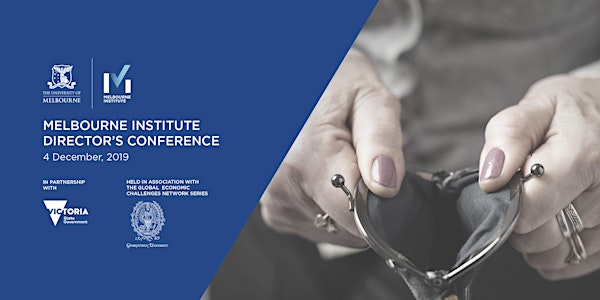Some communities in Victoria, and across Australia, experience deep and persistent social and economic disadvantage. Disadvantage is a multifaceted problem involving many factors that vary in intensity and complexity across these communities.
Disadvantage can be driven by geography if access is limited to employment and resources that provide opportunities for improving one’s quality of life. Communities will differ in economic and demographic characteristics that are often historic or have evolved by chance. But these differences can end up influencing the effectiveness of public programs (e.g. tax and transfer systems) and/or the use of inter-generational wealth transfers. In addition, the geography and economic climate in a region will affect planning and housing decisions.
The delivery of effective services to address disadvantage in communities can be challenging due to the varying needs of community members. It might be easier to address issues in areas that have a high concentration of members with similar social or economic characteristics (e.g. a high share of the population that are elderly) than in communities where there is greater diversity among the residents.
Geography alone, however, does not explain the challenges we face in addressing entrenched disadvantage. There are a range of other underlying factors such as the availability of education and training opportunities, early childhood support, family oriented programs, access to affordable housing, economic and social mobility, and/or cultural norms that can affect how we might address the challenges faced by families.
This second workshop as part of the Melbourne Institute Director’s Conference 2019 will focus on disentangling the issues driving social and economic inequality. We will explore how policy and service reform could be most effective, as well as how innovative individual and community actions and changes in service delivery can improve community outcomes.
Key to the conference is facilitating a rich dialogue among the speakers, panellists, and audience on how to address entrenched disadvantage using existing practice and by developing new service provider and community-initiated solutions.
12.15–12.45 PM, REGISTRATION
12.45–1.45 PM, PRESENTATIONS
Welcome by Professor A. Abigail Payne, Melbourne Institute Director and Ronald Henderson Professor and Mr. Marcus Walsh, Chief Economist, Economic Policy and State Productivity, Department of Premier and Cabinet, Victoria.
Introduction by The Hon. Jenny Macklin, Vice-Chancellor’s Fellow, Melbourne School of Government, The University of Melbourne.
Presentation by Ms. Lill Healy, Deputy Secretary, Department of Premier and Cabinet, Victorian State Government.
Presentation by Professor Diane Whitmore Schanzenbach, Director, Institute for Policy Research.
Presentation by Professor Guyonne Kalb, Melbourne Institute: Applied Economics & Social Research, The University of Melbourne.
1:45 - 2:45 PM, PANEL AND AUDIENCE DISCUSSION
Moderated by The Hon. Jenny Macklin, the speakers will be joined by Mr. Paul Briggs, Executive Chair Kaiela Institute, Ms. Jenny Hardy, GSANZ General Manager NILS & Microfinance – Good Shepherd Australia and New Zealand, Professor Shelley Mallett, Director Research and Policy Centre, Brotherhood of St Laurence, Ms. Sally McCutchan, CEO and Executive Director Impact Investing and Dr. Ilan Wiesel, School of Geography, The University of Melbourne.
2.45 PM CONFERENCE CLOSES
Afternoon tea is served
Please note: ID will be required for entry into the building for this event
